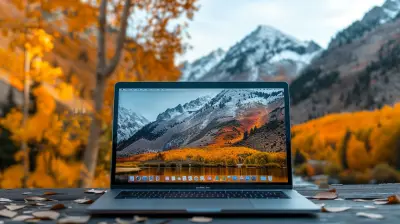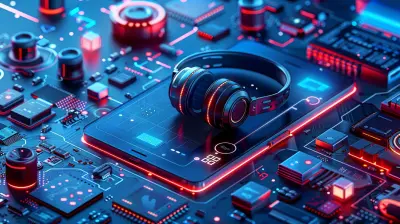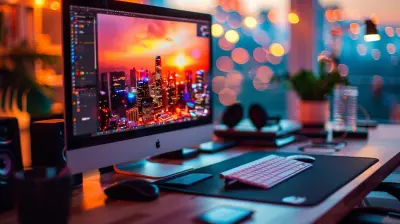Blockchain's Role in Driving Future Decentralized Economies
3 August 2025
Alright folks, grab your digital wallets and fasten your seatbelts—because we’re about to dive into a tech tornado that’s flipping the script on how economies work. Our topic today? "Blockchain's Role in Driving Future Decentralized Economies."
Yeah, yeah, I know. That sounds like something straight outta Nerdsville, right? But trust me, whether you're a crypto enthusiast who dreams in satoshis or someone who still thinks "blockchain" sounds like a wrestling move—this one's for you. We're going to break it all down, make it fun, and show you how this tech is shaping the future of how we share value, build trust, and create a fairer world.

So, What the Heck is Blockchain Anyway?
Let’s start with the basics (no eye rolls, I promise). Picture this: You’re at a potluck dinner, and everyone brings a dish. There’s no one head chef, but somehow everything gets recorded — who brought what, how much, and when. And the best part? No one can go back and change the record to pretend they brought the lasagna when all they brought was plastic forks.That’s blockchain in a nutshell — a decentralized, tamper-resistant digital ledger. Instead of trusting a central authority (like a bank or Uncle Larry), you trust the system. Everyone sees what's going on, and every transaction gets logged for all to verify.

From Cryptocurrencies to Entire Economies
Sure, blockchain gave birth to Bitcoin, which itself gave birth to some wild investment stories (and hair-pulling regrets). But the real magic isn’t just in the coins — it’s in the concept.We're moving from just decentralized money to fully decentralized economies. Imagine no central banks, no middlemen, and no need to sell your soul to access basic financial services. That’s not science fiction. That’s blockchain doing its thing.
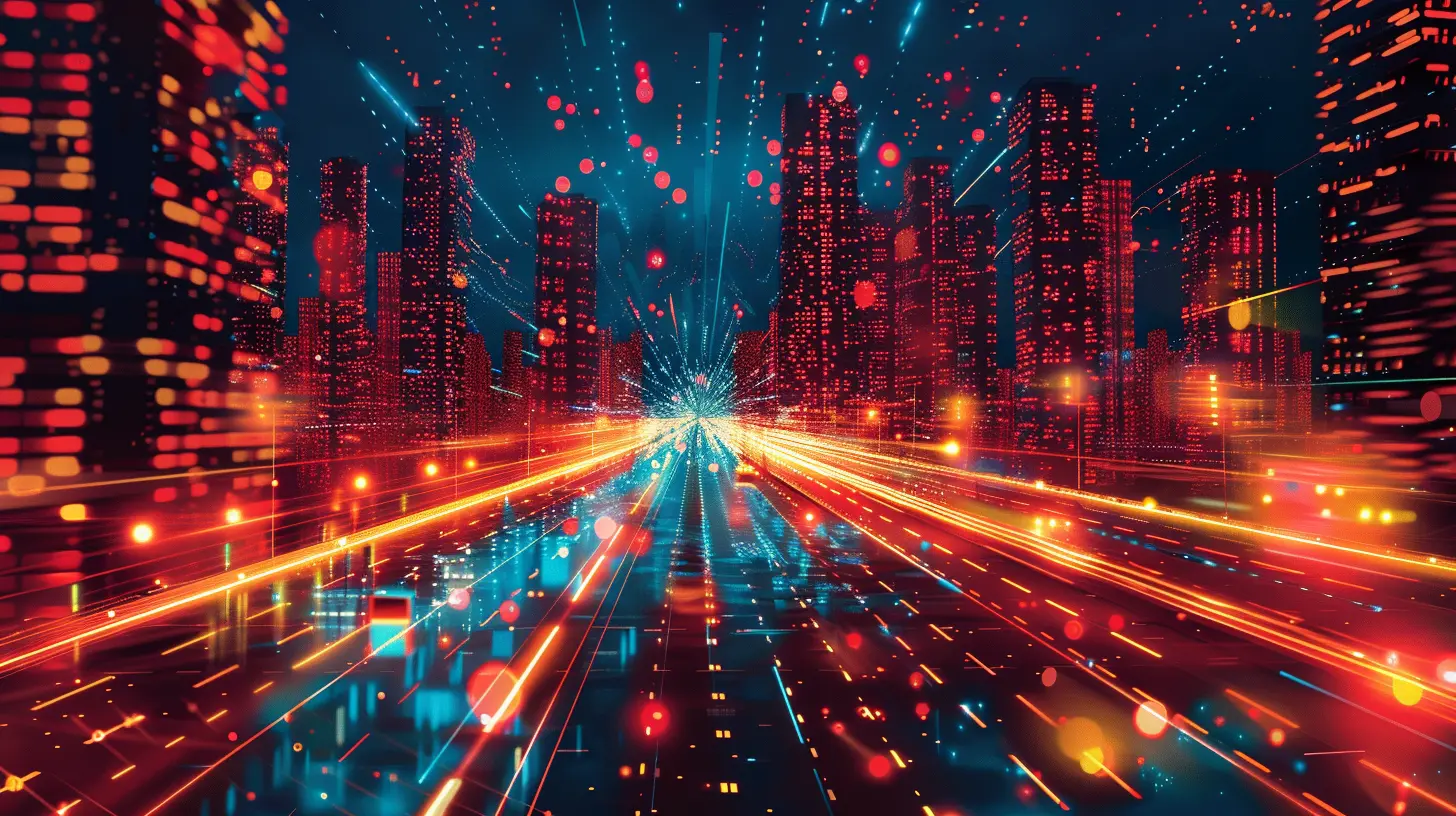
Centralized Economies: The Control Freaks of the Financial World
Let’s face it — traditional economic systems are basically VIP clubs for institutions. Think banks, governments, big corporates. They decide the rules, they hold your money, they charge the fees, and of course, they mess things up occasionally (2008 flashbacks, anyone?).Centralization has its perks — like faster decision-making (in theory) and stability (until it isn’t). But it also breeds inequality, corruption, and a whole lot of inefficiency.
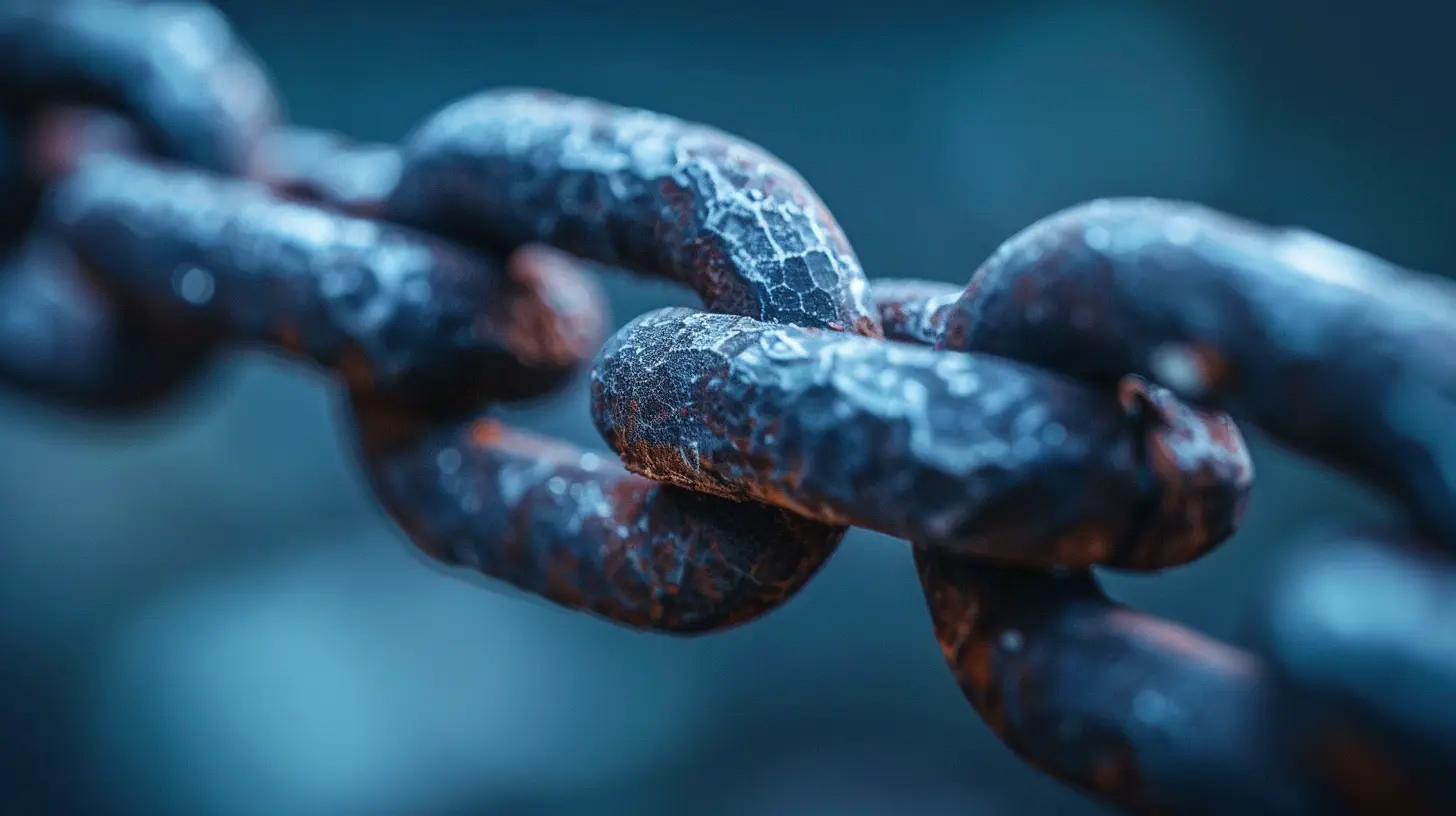
Enter Decentralized Economies: Power to the People
Now imagine this: A world where you lend money directly to someone across the globe using a smart contract. Where artists sell their music without losing 80% to platforms. Where farmers in remote areas get fair payments instantly, no middlemen taking a cut. It’s like the Robin Hood of financial systems — built not to steal from the rich, but to empower the average Joe and Jane.Decentralized economies are built on this concept, driven by—yep, you guessed it—blockchain.
Why Blockchain is the Backbone of Decentralized Economies
Okay, so you get that blockchain is cool. But why does it really matter?Let me throw some cold, hard facts (and not the boring kind):
1. Trust Without Middlemen
Blockchain lets us build systems where no one’s in charge, but everyone is accountable (mind-blowing, right?). It’s trustless, not because you can’t trust it, but because you don’t have to.No need to ask your bank if your money’s real. No more waiting 3-5 business days for a wire transfer. With blockchain, the system handles the trust for you, like a super honest referee who never sleeps.
2. Transparency Like Never Before
Every transaction on a public blockchain is visible to everyone. It’s like everyone can check the accounting books 24/7, and nobody can cook the numbers behind closed doors.This makes corruption harder, auditing easier, and accountability a built-in feature.
3. Ownership is Digital and Direct
Forget paperwork and title deeds lost in bureaucratic black holes. On the blockchain, ownership is digital, verifiable, and direct.You own your assets. You control your identity. You decide what data to share.
It’s like having a digital Swiss army knife that holds your whole life — and only you have the key.
4. Smart Contracts = Smart Business
Smart contracts are like vending machines for services.Insert the right digital coin, trigger the code, and BAM — the agreement executes itself without lawyers, notaries, or a million pages of fine print.
These tiny programs are changing how we do business. Think: freelancer payments, supply chain management, insurance payouts — all automated, instant, and incorruptible.
Real-World Examples: Blockchain Already Making Waves
Let’s sprinkle a little reality into this dreamworld, shall we? Here are just a few ways blockchain is already jazz-handing its way into actual use:- DeFi (Decentralized Finance)
DeFi is like your bank — if your bank let you trade, save, borrow, and lend without needing an account, ID, or a suit.Using only your crypto wallet, you can:
- Earn interest on assets
- Get a loan without a credit check
- Swap tokens instantly
It’s financial freedom without the gatekeepers. No wonder traditional banks are sweating.
- NFTs and Creator Economies
Love them or hate them, NFTs (Non-Fungible Tokens) are flipping how creators make money.Artists, musicians, and even meme creators can now mint NFTs to sell directly to fans, keep royalties on resales, and bypass platforms that usually take a huge cut.
It’s like Etsy meets Wall Street, with a sprinkle of digital wizardry.
- Supply Chain Tracking
Ever wonder where your avocado toast really came from?Blockchain makes supply chains transparent. From farm to fork, every hand-off gets recorded, creating trust and tracing fraud out of existence.
Walmart, IBM, and even coffee companies are using it to prove their supply chains aren’t shady.
- Digital Identity & Voting
Imagine voting from your couch — securely, anonymously, and with no sketchy machines involved. Blockchain makes that possible.It also helps people control their digital identities. This is huge for refugees, undocumented individuals, or anyone tired of losing their logins.
The Challenges (Because Nothing This Cool is Easy)
Alright, before you tattoo a blockchain address on your arm, let’s pump the brakes a little. This tech isn't a magic wand. It’s more like a gym membership — full of potential, but only if used right.Here are the main hurdles:
- Scalability
Most blockchains still have a tough time handling massive numbers of transactions quickly.Bitcoin’s network can be slooowww. Ethereum? Busy and expensive. But with new solutions like Layer-2 protocols and newer, faster chains (hello Solana), we’re getting closer to mass adoption.
- Regulation
Governments are still trying to figure out whether to hug blockchain or kick it in the shins.Too much regulation stifles innovation. Too little means scam city. The ideal future? Clear, fair rules that balance freedom with protection.
- Energy Costs
Some blockchains (looking at you, proof-of-work) have the carbon footprint of a small nation.Thankfully, more networks are moving to eco-friendly models like proof-of-stake, dramatically reducing energy use without killing security.
- User Experience (It’s Still Nerdy)
Let’s be honest, using some dApps still feels like trying to launch a rocket ship with a toaster.The UX needs a lot of work until grandma can use it without accidentally sending her retirement fund to the wrong address.
The Road Ahead: Where Blockchain is Taking Us
The path to decentralized economies isn’t paved with rose petals — it’s more like a gravel trail, filled with bugs (both the software and the literal kind if you’re running it outdoors).But we’re getting there.
Picture This Future:
- You get paid instantly for freelance work through a smart contract.- Your digital wallet holds your ID, bank info, health records — all secure and private.
- You vote on your local council via blockchain, with no hanging chads in sight.
- You invest in a startup across the world, and your ownership is verified, tracked, and liquid.
That’s not a dream. That’s the potential of blockchain-powered decentralized economies.
So, What Can You Do?
Great question, young padawan. Here’s how you can dip your toes into this brave new world without diving headfirst into the deep end:- Set up a crypto wallet: Think of it like opening a bank account for these new systems.
- Explore DeFi platforms: Try lending a few stablecoins or minting an NFT for fun.
- Follow blockchain news: The space moves fast. One week in crypto is like 10 in the real world.
- Be cautious: Scams are still out there. If it sounds too good to be true—it probably is.
Final Thoughts: It's Not Just About Tech. It's About People.
At its heart, blockchain isn’t just changing code or currencies — it’s changing power structures. It’s shifting control from the few to the many. It’s reimagining economies where everyone plays, and everyone profits.So yeah, the tech is cool. But the future it promises? That’s downright revolutionary.
And whether you’re a blockchain aficionado or someone who just figured out how to unmute Zoom calls, this technology is going to affect your life. The only question is: will you be ready for it?
all images in this post were generated using AI tools
Category:
Future TechAuthor:

Reese McQuillan
Discussion
rate this article
1 comments
Bethany Newman
Blockchain technology is pivotal in shaping decentralized economies, enhancing transparency, security, and efficiency. Its ability to facilitate peer-to-peer transactions will redefine traditional economic structures and empower individuals globally.
August 13, 2025 at 5:00 AM

Reese McQuillan
Thank you for your insightful comment! I agree that blockchain's transformative potential in decentralized economies is profound, and its impact on transparency and peer-to-peer transactions is indeed game-changing.
